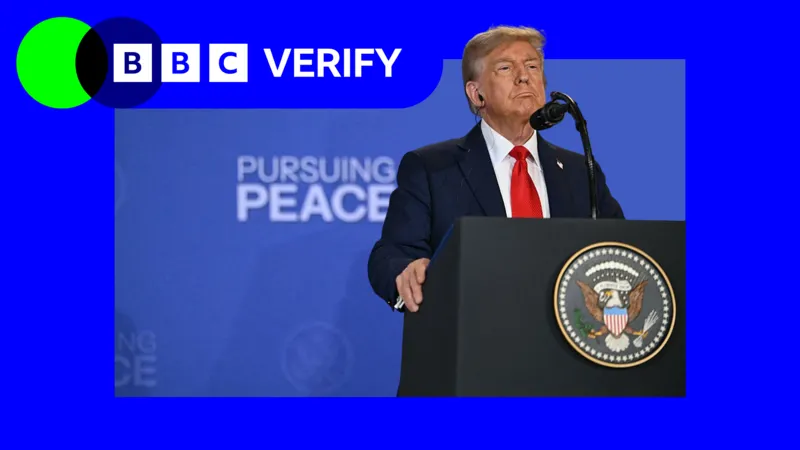How Many Wars Has President Trump Really Ended?
Introduction
In recent media appearances, former President Donald Trump has boasted that he “ended six,” “seven,” or even “several” wars during his tenure. But what’s the reality behind these bold claims? Let’s break down exactly what he’s referring to—and what experts say—with clear facts and analysis.
What Did Trump Claim?
- Six wars ended: As of mid-2025, Trump has claimed he “ended six wars” he settled through diplomatic efforts this year. (The Times, The Daily Beast, News-Press NOW)
- Later expanded to seven: Soon after, he raised the number to “seven wars.” (AP News, NBC New York, News-Press NOW)
- Deals cited: According to the White House, those conflicts include:
- Armenia–Azerbaijan
- DRC–Rwanda
- Israel–Iran
- India–Pakistan
- Cambodia–Thailand
- Egypt–Ethiopia
- Plus Serbia–Kosovo (in some versions) (The Times, Geographical, RNZ)
What’s the Reality? Fact Check & Expert Analysis
1. Israel–Iran
- Trump authorized U.S. airstrikes on Iranian nuclear sites in June 2025.
- He is credited with brokering a ceasefire—but the conflict remains fragile and could flare up again. (NBC New York, CNN, Vox, X (formerly Twitter))
2. India–Pakistan
- A ceasefire was reached after a serious escalation over Kashmir.
- Pakistan credited Trump; India denied U.S. involvement. Experts suggest the U.S. may have played a supportive, but non-decisive, role. (NBC New York, WTOP News, CNN, The Times of India)
3. DRC–Rwanda
- A U.S.-brokered deal was signed at the White House.
- Key rebel groups like the M23 were excluded—and violence resumed shortly after. (The Washington Post, NBC New York, AP News, TRT Global)
4. Armenia–Azerbaijan
- Leaders attended a White House summit and initialed a peace corridor/treaty.
- Still only a preliminary agreement; a formal peace treaty hasn’t been signed. (Spectrum News NY1, Geographical)
5. Cambodia–Thailand
- A brief border conflict ended with a ceasefire.
- While Trump used U.S. trade talks as leverage, full troop withdrawal and lasting peace are TBD. (Geographical, RNZ, The Times, AP News)
6. Egypt–Ethiopia
- The long-running GERD (dam) dispute remains unresolved despite Trump’s rhetoric.
- No binding agreement has been achieved; negotiations have stalled. (Geographical, Spectrum News NY1, The Independent, CNN)
7. Serbia–Kosovo
- Trump negotiated economic normalization in his first term, not renewed conflict resolution recently.
- Tensions persist, and no war was actively brewing during the period he cited. (Geographical, RNZ, CNN, WTOP News)
8. Yemen–Houthis (Additional context)
- In 2025, Trump announced a ceasefire after U.S. strikes on Yemen’s Houthis, brokered by Oman.
- While framed as ending hostilities, this isn’t among the six/seven claims he emphasizes—but provides broader context to his peace narrative. (Wikipedia)
Summary Table
| Claimed Conflict | Status | Verdict |
|---|---|---|
| Israel–Iran | Ceasefire agreed | Partially resolved |
| India–Pakistan | Ceasefire reached | Partial/contested |
| DRC–Rwanda | Peace deal signed | Fragile, not comprehensive |
| Armenia–Azerbaijan | Preliminary agreement | Not finalized |
| Cambodia–Thailand | Ceasefire, trade leverage | Temporary solution |
| Egypt–Ethiopia | Negotiations continue | No resolution |
| Serbia–Kosovo | Economic rather than conflict | Not active war |
| Yemen–Houthis (context) | Ceasefire announced | Not part of his main claim |
- Trump’s claims are inflated: He frequently leverages temporary or partial ceasefires as evidence of “ending wars.” (X (formerly Twitter), CNN, The Daily Beast)
- Fact-checking experts caution against overinterpretation: Many of these claims are contested or lack lasting impact. (CNN, AP News, RNZ)
- Some claims simply aren’t wars: Tensions between Egypt and Ethiopia or Serbia and Kosovo were never full-scale wars. (NBC New York, X (formerly Twitter), RNZ)
What You Should Know
Donald Trump has claimed to have ended six or seven wars through diplomatic efforts. While he has indeed brokered or influenced ceasefires and agreements in various regions, independent analysis strongly suggests that:
- Many of these “war endings” are either preliminary, conditional, or disputed.
- Several conflicts remain unresolved or could reignite.
- Some claims pertain to disputes—not active wars.
Call to Action
Still curious about international conflict resolution or how U.S. diplomacy shapes global outcomes? Let’s explore deeper—whether it’s evaluating diplomatic legacies, peace-deal mechanics, or historical comparisons. Just say the word!





